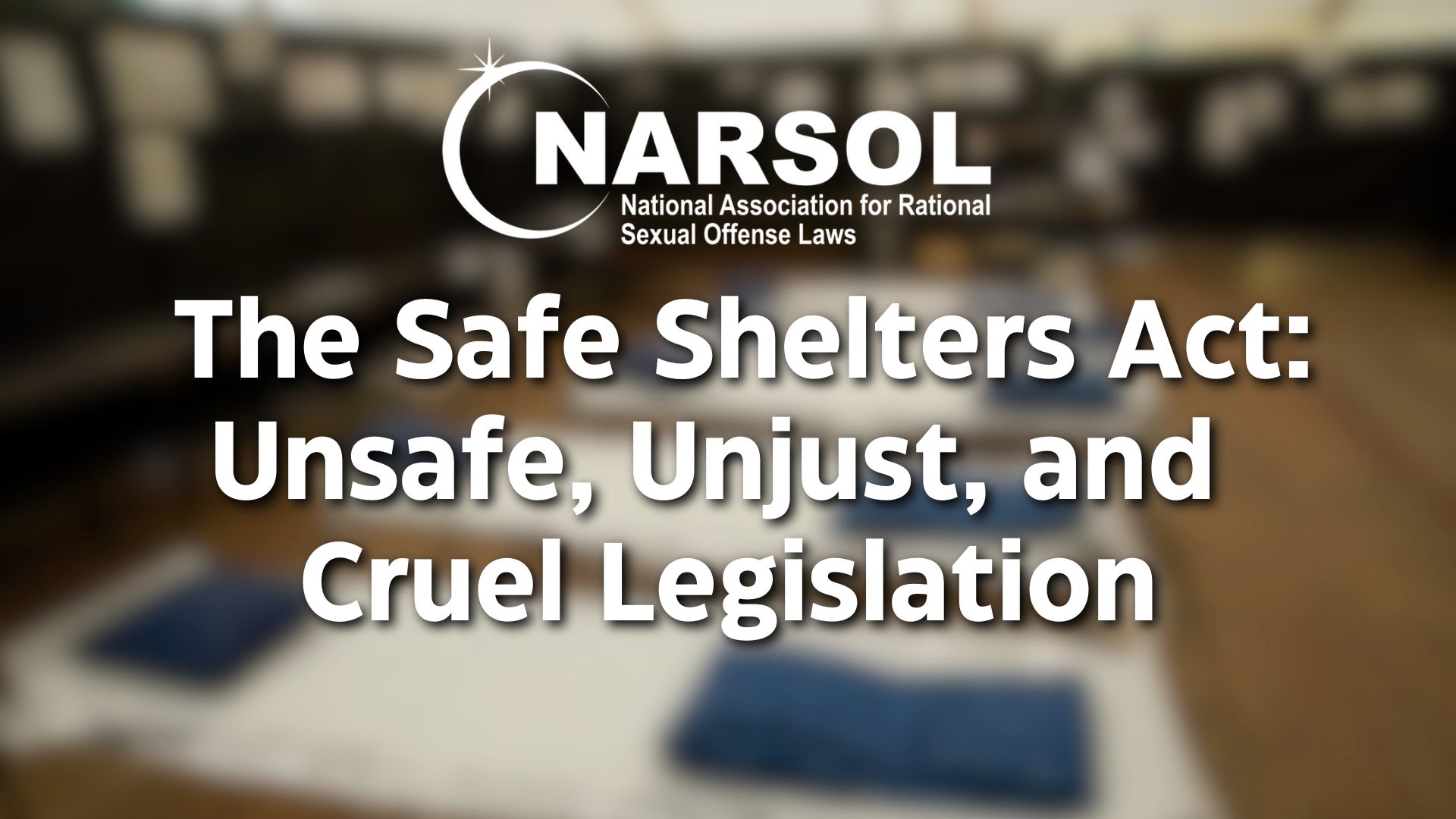AZ RSOL says, “It’s time for a new direction in sexual offense policy”
Originally prublished in the Arizona Capitol Times
By John Covert . . . Among all the policy experiments in this country that have thoroughly missed the mark, sex offense registries have surely earned their own special niche.
Registries have been examined in numerous academic studies over the past several decades, and virtually all of them have found that registries do not accomplish what they were intended to do. They do not reduce recidivism.
They do not prevent sex offenses. They do not protect children. They do not make communities safer.
These findings certainly run counter to the beliefs of some policy makers seemingly more interested in inflicting additional punishment on past crimes or enhancing their “tough on crime” personas. New directions must be taken—employing evidence-based reforms focused on intervention and treatment methods that have been shown to reduce sexual violence.
Sex offense registries in this country go back to the mid- 20th century, when they had the limited aim of providing law ennforcement (and only law enforcement) with contact information on those who had committed specific types of offenses.
Then, in 2003, the U.S. Supreme Court upheld Alaska’s relatively lean registry, using the now debunked premise that people convicted of a sex offense have an exceptionally high recidivism rate. Policy makers around the country took it as an invitation to pile on new regulations and requirements, vastly expanding registries that had once focused on a narrow spectrum of serious crimes to include an ever- growing list of offenses, even including such things as public urination and sex among underage teenagers.
Those who seek to maintain, and even expand, sex offense registries make the claim that those convicted of a sex offense cannot be rehabilitated and need to be under constant surveillance. However, study after study has shown that therapeutic interventions largely lead to success. In fact, those convicted of sex offenses have essentially the lowest recidivism rate among all classes of offenders; a study done by the U.S. Department of Justice found a reconviction rate of 3.5% among individuals in 15 states released over a three- year period.
So, if registries do not work as intended, what can be done?
The American Law Institute (ALI) provided recommendations on where states might go when it adopted extensive model penal code revisions regarding sex offense registries in 2021. ALI’s model codes are enormously influential in the courts and legislatures, and in legal scholarship and education.
ALI’s proposed changes match the recommendations of academic literature, which shows that people convicted of sexual offenses have low reoffense rates and that registration hinders rehabilitation and reintegration into society.
Specifically, it recommends restricting the information on registries to be available to law enforcement only, limiting those registered to only the most dangerous, and shortening the length of time individuals must remain on the registry.
The first is important because publicly listing those convicted of a sex offense on the internet exposes them to a variety of negative consequences, ranging from public shaming, physical intimidation and violence, and difficulties in finding employment and a place to live.
The requirement of lifetime registration that many states, including Arizona, impose carries burdens for many convicted of a sex offense, often preventing them from ever being able to fully reintegrate into their communities even many years after the offense.
In her dissent in the Alaska Supreme Court case, Justice Ruth Bader Ginsburg noted that many registries, including Arizona’s, make no provision at all for the possibility of rehabilitation. “However plain it may be that a former sex offender currently poses no threat of recidivism,” she wrote, “he will remain subject to long term monitoring and inescapable humiliation.”
At a time when the American Law Institute, virtually all available research, and a growing body of public and professional opinion reflect the reality that our current sexual offense policies do not work, it is important for Arizona to take a new direction.
John Covert is a member of the Arizonans for Rational Sex Offense Laws Executive Committee.



Y don’t they let ppl that have horrible thoughts.in make up crimes for horrible attention In want help for it join the sex offender registration it could save that person to never have that kind of mental break down
Interesting that while in-house and post incarceration therapies are required, none are considered as recognized medical treatment by any governmental agency, et al. How is it that the therapeutic approach is required, but not recognized except by the judicial and correctional portions of the government?